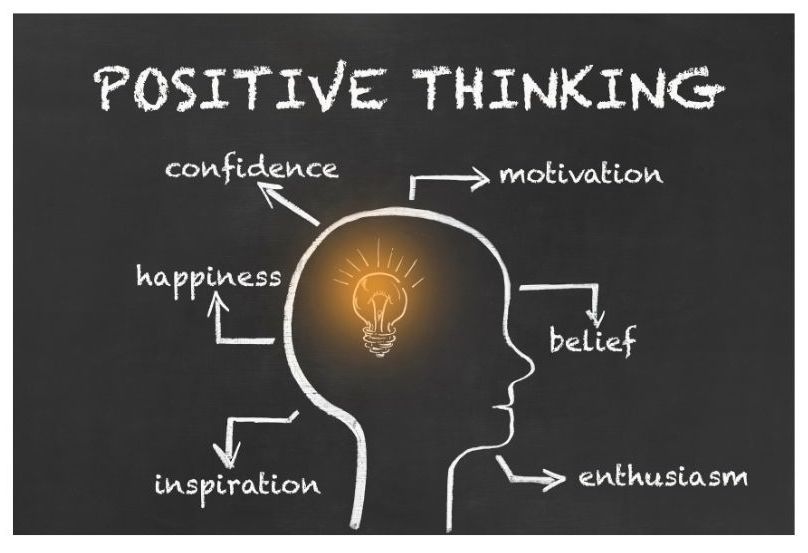Lucky Girl Syndrome: Delusional or Scientifically Proven?
The concept of positive thinking has been introduced, marketed and monetized generation over generation.
Baby boomers were introduced to The Power of Positive Thinking.
Thanks to Oprah, Generation Y was privy to The Secret.
Millennials invested in colorful vision boards.
Today, Gen Z introduces us to the Lucky Girl Syndrome.
Lucky Girl Syndrome came to life recently when 22-year-old influencer, Laura Galebe, posted a video crediting her success to pure “luck”. “Nothing ever doesn’t go my way” she says, referring to her professional and financial success. She explains that because of her daily positive mantras, “great things are always happening to me unexpectedly”.
The Tik Tok phenomena is being criticized as a delusional, lazy and selfish philosophy however. Is this a “fake it till you make it” mantra which influencers are only using for monetization? I don’t believe so.
The philosophy of positive thinking dates back at least 3000 years to Hinduism, the oldest known religion of the modern world, followed by other religions including Buddhism and Christianity.
Every generation has taken its spin on positive affirmations and mantras and it is to no surprise that Lucky Girl Syndrome, introduced on social media, has become a viral sensation. Everyone (or almost everyone) is looking for fortune and success in their lives.
What I have chosen to teach my daughter is that the Lucky Girl Syndrome can truly change your mindset and build a strong mental sphere.
The Science Behind Lucky Girl Syndrome
I introduce to you our Reticular Activating System (RAS). Our RAS is the part of our brain that helps us filter information and determine what we should be paying attention to.
Throughout the day, information and stimuli are constantly being thrown at us. The human brain can process 11 million bits of information every second. But our conscious minds can handle only 40 to 50 bits of information a second.

Essentially, our RAS assists our brain in deciding what information, between the conscious and subconscious, takes priority. It helps us learn from our experiences. So, if we are repeating positive thoughts, our brain tends to seek the more positive information and stimuli. Similarly, if our mindset is negative, our brain filters out the negative thoughts and experiences.
Our RAS In Action
My daughter, who loves to sing, had an opportunity to try out for a solo in the holiday choir performance.
She practiced the part over and over throughout the week but told me from the onset that she still hadn’t decided if she will actually audition. Her apprehension? She says she gets extremely nervous singing in front of an audience if singing alone.
We practiced not only the song all week, but keeping her mindset positive as a way to get rid of the nerves. The night before the audition she decided she wasn’t going to try out.
My husband thought it was a mistake for us to allow her to be ok for not going through with the audition. We were teaching her that if you are scared, it’s ok to quit or simply not to try. Her getting the solo part or not was not the issue.
So, together with her, we repeated “I can sing and I can do this”. Over and over and over…
The next morning she said she was a little nervous but was ready to try. She repeated the positive phrases and off to school she went. Is it possible that her RAS was filtering and executing that she was in fact ready to do this? Did she finally believe it?
After school, she said the audition went great!!! She found out a few days later that she got the part and continuing with that mindset, her nerves were gone on the Big Day.
Positive Mantras Coupled With ACTION!
I do agree with the Tik Tok critics that those who simply repeat daily “I am lucky” or “I will receive a big fortune” while sitting on the couch scrolling through TIk Tok are lazy and delusional! Their fortune may be pure luck.
Positive mantras should be coupled with action, like practicing for the choir solo part all week. To the Tik Tok generation (including my nine-year-old) who believes in the Lucky Girl Syndrome, you have to work towards what you want.
My hope is that our kids couple a positive manifestation with sincere action, having a better and honest shot at success. That’s also the part of me that believes in the Baby Boomer workaholic mentality.
Positive Toxicity
Obviously, the phrases “I can’t…” and “I’m not good at…” are ones we do not want our kids’ RAS filtering through.
It is important however that positive thinking does not mean that we, as parents, are suppressing or dismissing our children’s negative feelings.
We do not want to pretend that everything is ok, creating a positive toxicity by responding to distress with false reassurances. We want to be positive that we can make things ok with the right tools.
Take note of kids who are acting out, have a low self esteem, depression or other challenges that may need additional assistance to daily positive mantras.
Positive Mantras Are Selfless
Lastly, Lucky Girl Syndrome focuses on personal good fortune. I prefer to teach my daughter not only about personal good fortune but good fortune for others.
Our RAS must filter when we think positive thoughts about others as well. I personally believe and have experienced that if you put out positive vibrations to others, people will receive them. Some of you may think I’m delusional now, but it’s true!
Every night before we go to sleep, we name one person or group of people (even if we don’t know them) to send positive vibrations to. My daughter has chosen the people who live in the Ukraine, her cousin, grandmother and even a friend who hasn’t been so kind to her.
Whether you believe in the Lucky Girl Syndrome philosophy or not, why not keep a positive mindset? It cannot hurt. It can only help your daily mindset and overall mental fitness. With 70% percent of public schools reporting an increase in the percentage of their students seeking mental health services at school (National Center for Education Statistics), a positive mindset is one tool our children can practice to find balance in their mental sphere.

Comments are closed